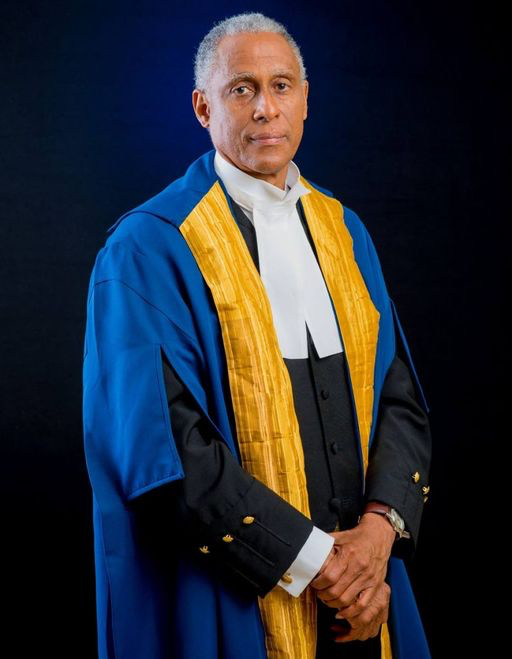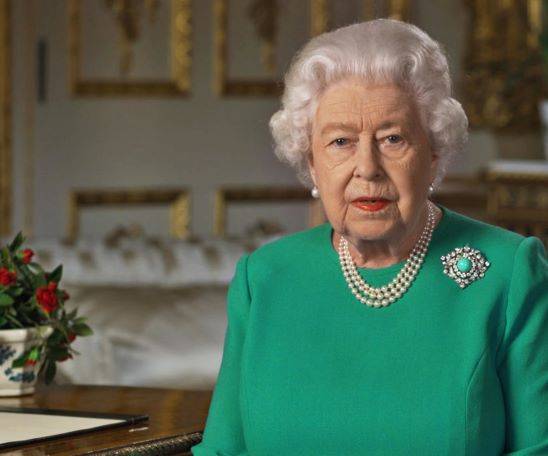CCJ President says itinerant sitting in Barbados necessary to send message to region

President of the Trinidad-based Caribbean Court of Justice (CCJ), Justice Adrian Saunders, says he hopes the itinerant sitting of the court in Barbados will further demonstrate the commitment to provide “fair and efficient justice” to the people of the Caribbean region.
The CCJ, which was established in 2001 to replace the London-based Privy Council, serves as the final court for Barbados, Dominica, Belize and Guyana, while other Caribbean Community (CARICOM) countries make use of its Original Jurisdiction where the court functions as an international tribunal interpreting the Revised Treaty of Chaguramas that governs the regional integration movement.
Justice Saunders said that the idea of itinerancy, that is, having the CCJ physically sit outside its seat in Port of St of Spain, is something the court takes seriously.
“As I believe I noted in Guyana, there is great value in having these in-person hearings in different member states,” he said, adding that Barbadians have long demonstrated their high regard for and confidence in the CCJ.
He recalled that the very first matter heard by the CCJ in 2005 was a case from Barbados. “Since then, in its Appellate Jurisdiction, the Court has received 123 more cases from Barbados. Six cases in the Court’s Original Jurisdiction have involved the State of Barbados or a party from Barbados.
“Another notable first that should be recognized is that the Court held its first itinerant sitting here in Barbados in 2012. And we returned in 2013, the last time we sat here in person, for a hearing in one of the more important cases the Court has heard in its Original Jurisdiction."
Justice Saunders, the third CCJ President, said itinerant sittings allow the judges and the CCJ to interface directly with attorneys, litigants and other key stakeholders. He said they also allow the CCJ’s Registry officials to obtain a first-hand understanding of the domestic court’s Registry processes and vice versa.
“Our time in the sister state allows us to meet and interact personally with Judiciary staff with whom our staff communicate virtually on nearly a daily basis. Most importantly, these itinerant sittings afford litigants, potential litigants and members of the public from all walks of life the opportunity to see the Court at work up close, to see our Judges in the flesh as they engage upon the adjudication process."
He said while he hopes the Barbadian public would take advantage of the sittings here, “it is my hope that this sitting will serve as a further demonstration of our commitment to provide accessible, fair and efficient justice for the people of Barbados and also the people and States of the entire Caribbean Community."
The CCJ was expected to deliver judgment in a criminal appeal from Barbados, which was heard last June during its itinerant sitting in Guyana. It was also due to hear two cases in the Appellate Jurisdiction.
“Our presence in Barbados today was deliberately timed to coincide with the seventh Biennial Law Conference of the CCJ Academy for Law, which will be held …from this Wednesday to Friday.”
Justice Saunders said that the Academy is the educational arm of the CCJ, and the conference has the theme ‘Criminal Justice Reform in the Caribbean: Achieving a Modern Criminal Justice System.’
“This Conference promises not only to be informative but also, we hope, beneficial and thought-provoking as it comes at a time when the region is suffering from high levels of transnational and national criminal activity accompanied by substantial case backlogs, high pre-trial detention rates and widespread inefficiencies across the criminal justice sector in the region,” Justice Saunders added.
He said apart from the Academy’s Conference on Criminal Justice, the CCJ will also be using the visit as an opportunity to continue its public education activities.
He said in August, a session was held with the Judiciary of Barbados on the referral obligation under Article 214 of the Revised Treaty of Chaguaramas.
“This is a facility that has been severely underutilised to date. On this visit, we can engage with the Bar in a session similar to the one we held in August with the Judges."
“We also propose to engage with the business community on the role and place of the Court in the operations of the CSME and how they can take greater advantage of opportunities created by the Revised Treaty of Chaguaramas,” Justice Saunders said, adding “over the next week, we shall be swamped, and we very much look forward to the mutual exchanges and learnings that will no doubt ensue from all our many interactions”.






0 Comment